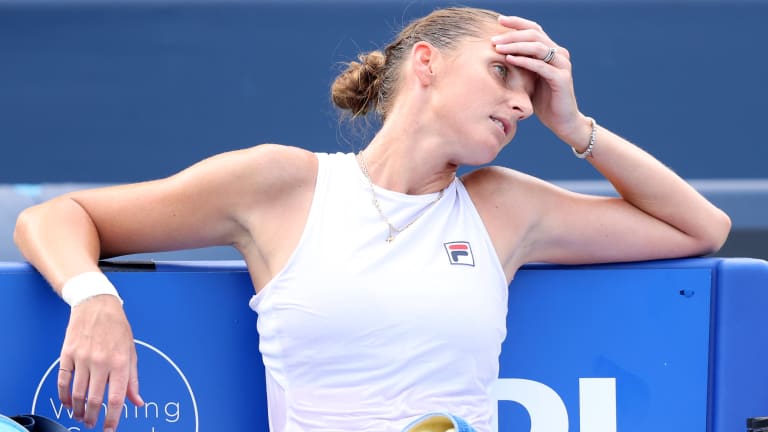Tennis.com Interview
Get Low: Karolina Pliskova emerges from career crevasse with renewed clarity ahead of US Open
By Aug 30, 2021Tennis.com Interview
Nick Kyrgios brings the show, and new perspective, to Madison Square Garden
By Dec 08, 2025Tennis.com Interview
After longest off-season ever, Tommy Paul talks injury comeback, wedding plans at MSG
By Dec 08, 2025Tennis.com Interview
Following in family footsteps, Elli Mandlik clinches Australian Open return in wild card play-off
By Nov 25, 2025Tennis.com Interview
Ben Johnson 101: How an Instagram auteur is defining modern tennis lifestyle
By Nov 11, 2025Tennis.com Interview
Patrick Kypson, former college teammate of Rinderknech and Vacherot, is writing his own perseverance story
By Oct 28, 2025Tennis.com Interview
Michael Zheng channels Ivy League balancing act into rapidly blossoming pro tennis future
By Oct 21, 2025Tennis.com Interview
Flavio Cobolli wants to earn Davis Cup Finals nomination—and stay on as ATP's 'admin'
By Oct 16, 2025Tennis.com Interview
With IMG Academy backing, Wakana Sonobe kicks off pro career at home in Osaka
By Oct 16, 2025Tennis.com Interview
Alex Michelsen wins Almaty debut to end losing skid, reveals coaching trial with Kristof Vliegen
By Oct 15, 2025Get Low: Karolina Pliskova emerges from career crevasse with renewed clarity ahead of US Open
The former No. 1 and Flushing Meadows finalist discussed her quest for perfectionism ahead of a first-round clash with Caty McNally.
Published Aug 30, 2021
Advertising
Advertising
Advertising
Advertising

Pliskova won just six matches through the first two months of 2021, triggering a crisis of confidence for the 29-year-old Czech.
© Getty Images